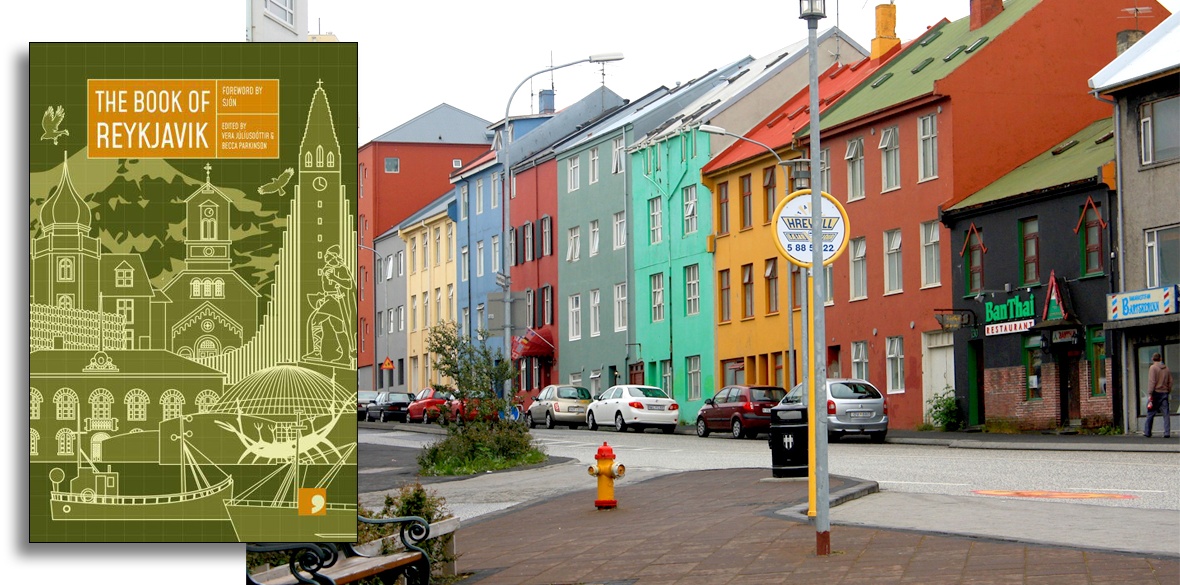This is the last article you can read this month
You can read more article this month
You can read more articles this month
Sorry your limit is up for this month
Reset on:
Please help support the Morning Star by subscribing here
Book of Reykjavik
Edited by Becca Parkinson & Vera Juliusdottir
Comma Press £9.99
OUT of habit, I normally ignore a book’s various prologues, acknowledgements and afterwords as needless embellishments. It is usually better for the reader to encounter fiction unencumbered by someone else’s well-meaning but agenda-ladened framing.
For this collection of 10 short stories by contemporary Icelandic writers, I would counsel the complete opposite.
For those readers, like me, who know very little about the Icelandic capital, Sjon’s foreword and the introduction by Vera Juliusdottir provide an essential ready reckoner, an important orientation without telling us how to navigate the contributions.
As such, the sharp and sparse writing that follows, generally focused on the experiences and thoughts of an individual, places Reykjavik at the unsteady centre of a number of overlapping contradictions.
Essentially, these are between the ideals respectively of the country’s epic narratives and raw natural world on the one hand and the popularity of other literary formats (one in 10 Icelanders are published authors) and the many compromises necessitated by urban living on the other.
Juliusdottir considers the capital “small but over-performing,” while Sjon names it the City of Fear. Both are right.
For reasons of space, I’m able to highlight just five of these exemplary stories, although all are first-rate.
The intense, furious struggle of a woman against her rising fear as she walks alone in the early hours is captured in Home by Frida Isberg, translated by Larissa Kyzer.
Employing the singular second person voice, the reader is pitched into her increasingly panicked interior conversation as she counts down the time until she can reach her house. Even the flashes of dark humour serve to emphasise her disorientation. “Are you supposed to punch your attacker right in the face or swing your fist like a cat with its claws out.
“You make a mental note to ask YouTube when you get home. There are no heroes here.”
The state of the relationship between the couple in Two Foxes by Bjorn Halldorsson, again translated by Kyzer, is as crepuscular as the story’s setting.
The only residents of an estate that fell victim to the 2008 financial crisis and located fittingly on the edge of an ancient lava flow, the two have grown gently apart. Waking up in the small hours, the unnamed man goes outside and encounters a fox, triggering memories of his farmer father’s less-than-sentimental thoughts on the species and how far his life has changed over the years. A minutely observed sliver of fiction.
Another man slips away from his sleeping wife in Keep Sleeping My Love, Lytton Smith’s translation of Andri Snaer Magnusson’s story of regret and sadness.
For the previous nine Augusts, the couple would cycle together to watch the sun set behind the volcano Snaefellsjokull. But not this year. As he travels he mediates on the Icelandic for I love you: eg elska pig and the churning memories it conjures up.
Yet Magnusson avoids slipping into the national melancholic stereotype with thunderous flashes of spectacular one-liners. There are many regarding the emotion missing from the man’s life, including: “the word stands out like a red sock in a white wash” and “my heart is covered with cold copper.”
The Gardeners by Einar Mar Gudmundsson, translated by Victoria Cribb, is a straightforward but nonetheless compelling tale of three farming brothers who are forced off their land by ill-luck and migrate to Reykjavik.
After gaining employment in various unsuitable occupations, they put their agricultural skills to good use and become landscape designers, recreating idealised versions of the Icelandic countryside.
In a neat counterpoise, the grumpy language teacher they encounter and who is their landlord ups sticks to live in their old cottage as he seeks to be closer to the landscapes that inspired the country’s oral traditions.
In Fridgeir Einarrson’s Island, translated by the seemingly ubiquitous Kyzer, an expat Icelander returns for the funeral of his mother. This is one of the most acute observations of the discombobulation of cultural annihilation. Elli struggles to raise any emotion from discovering various connections to his childhood, whether that be his own clothes or past friendships. A wonderfully disturbing study of loss.












